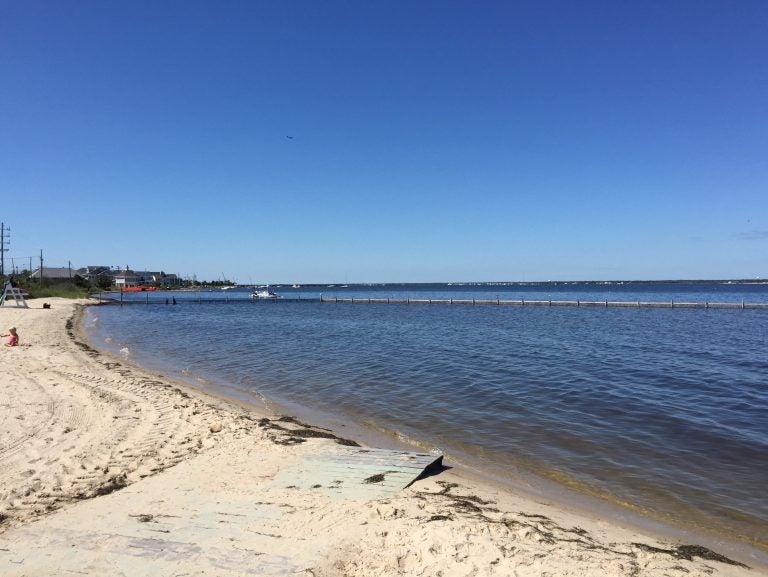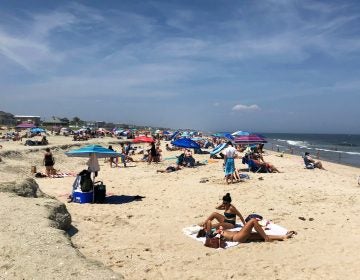Fecal bacteria closes N.J. beach for days; no swimming at two others
An unacceptable level of fecal bacteria continues to keep a New Jersey beach closed while swimming is restricted at two others.

A 2015 image of the 5th Avenue bay beach in Seaside Park. (Justin Auciello/for WHYY)
An unacceptable level of fecal bacteria continues to keep a New Jersey beach closed while swimming is restricted at two others.
The 5th Avenue beach along the Barnegat Bay in Seaside Park has been closed since last Wednesday due to a high level of enterococcus, a bacteria found in the intestines of warm-blooded animals that can cause urinary tract infections, bacteremia, bacterial endocarditis, diverticulitis, and meningitis.
The acceptable level is 104 colonies per 100 ml of water. According to the New Jersey Department of Environmental Protection, since the first closure day last week, testing samples have revealed greater than 600 colonies of enterococcus on five testing days.
State officials did not reveal the cause of the spike, although the Seaside Park beach, along with other nearby river and bay beaches, are historically susceptible to enterococcus accumulation after rainfall and associated storm runoff.
The 25th Street bay beach in Barnegat Light and the 16th Street bay beach in Surf City are under swimming advisories.
The state tests water quality at over 200 ocean, bay, and river beaches weekly and issues advisories following an unacceptable bacteria level. You can check water quality at your local beaches here.
Beaches are closed if two consecutive samples collected at a bathing beach exceed the state standard and remain in effect until subsequent sampling indicates bacteria levels are again below the standard, according to the DEP.
State data indicates that the vast majority of swimming advisories are discontinued after retesting, and beaches are very rarely closed.
Jeff Tittel, director of the New Jersey Sierra Club, said the state needs to work toward a solution.
“The state needs to take action now on dealing with septic and stormwater management and strengthening standards that limit fertilizer, pollution, and more. We also need more funding to restore wetlands and natural systems, and to retrofit stormwater systems in existing developments,” he said in a statement.

Get daily updates from WHYY News!
WHYY is your source for fact-based, in-depth journalism and information. As a nonprofit organization, we rely on financial support from readers like you. Please give today.



